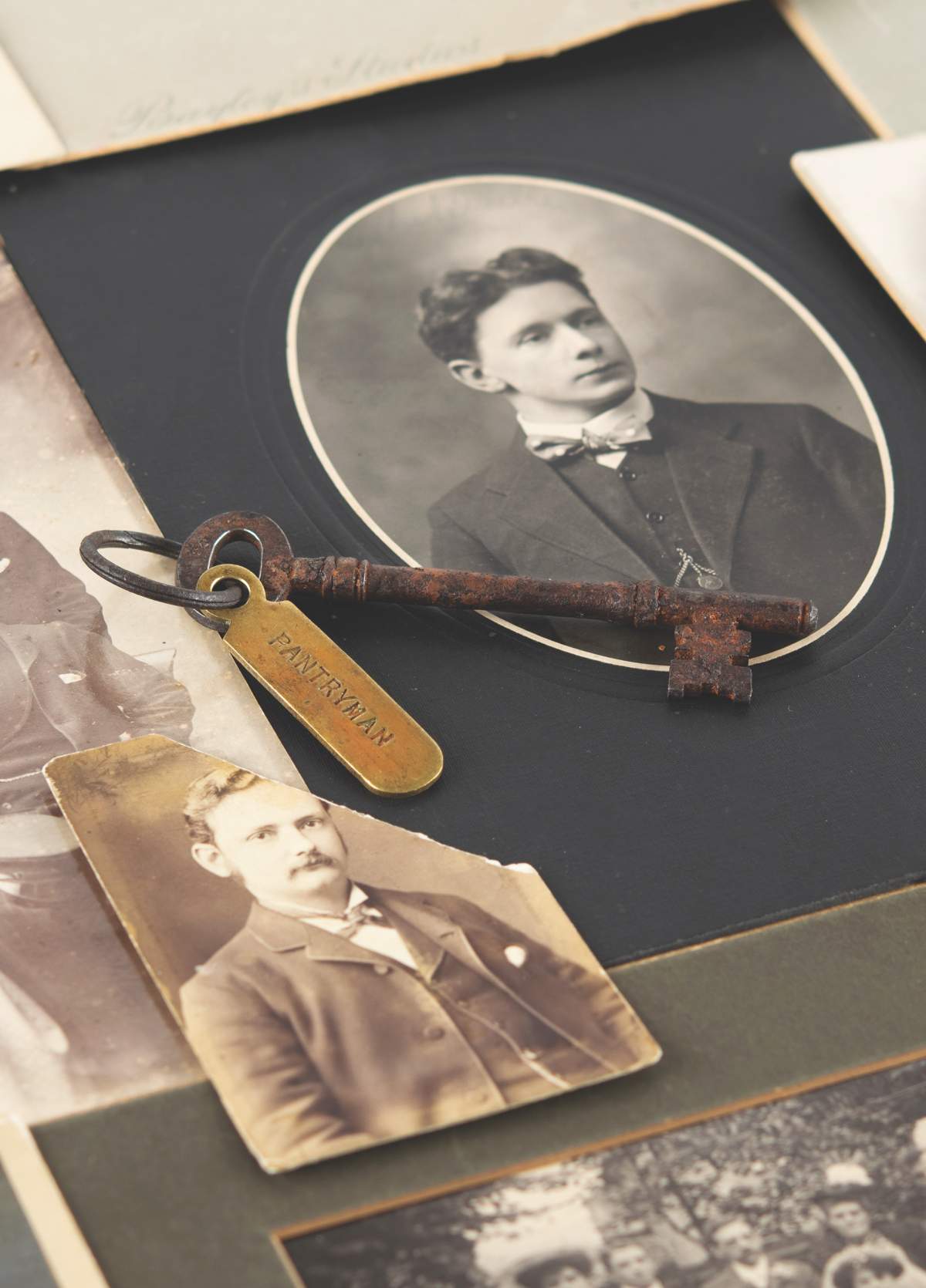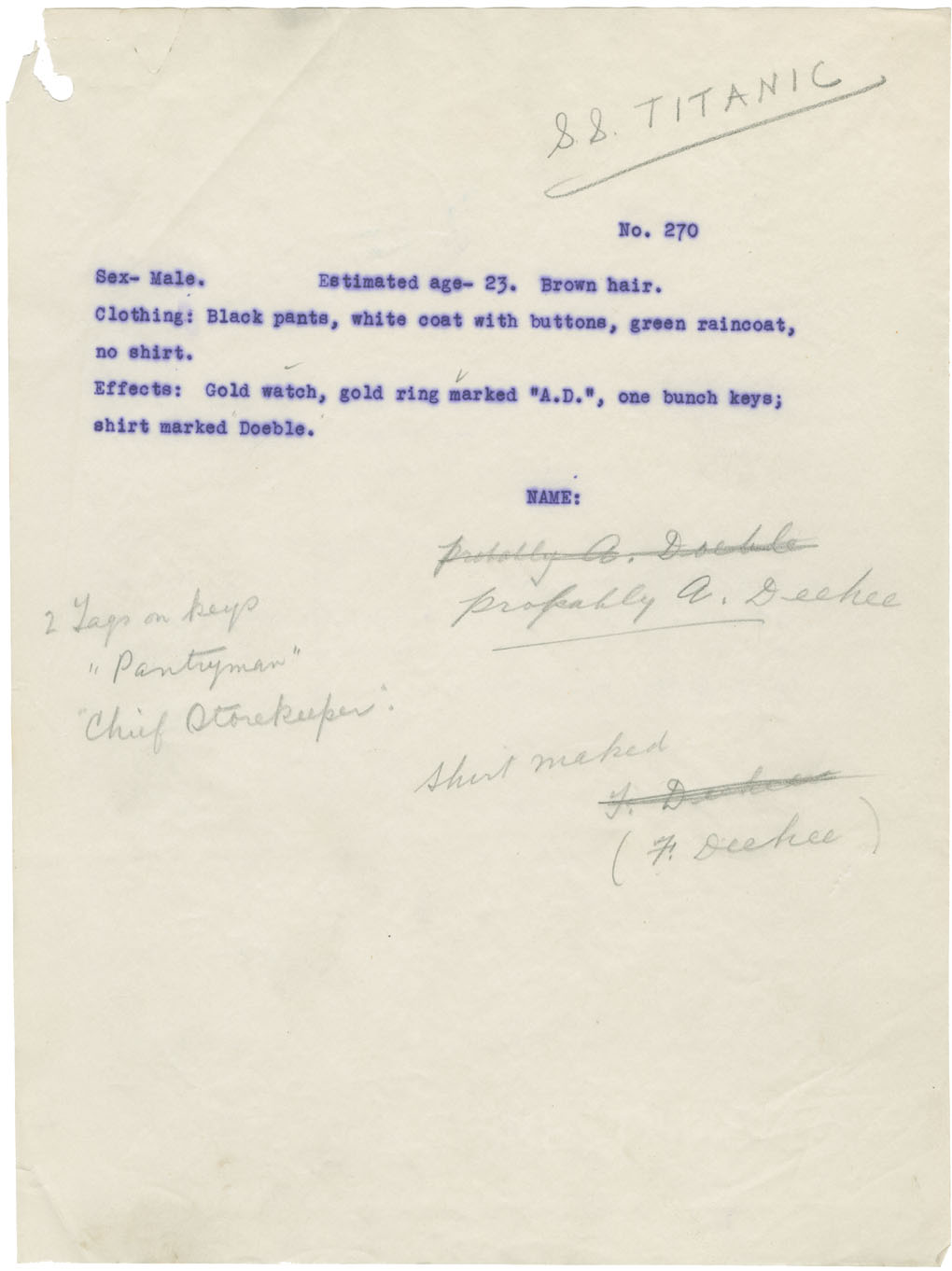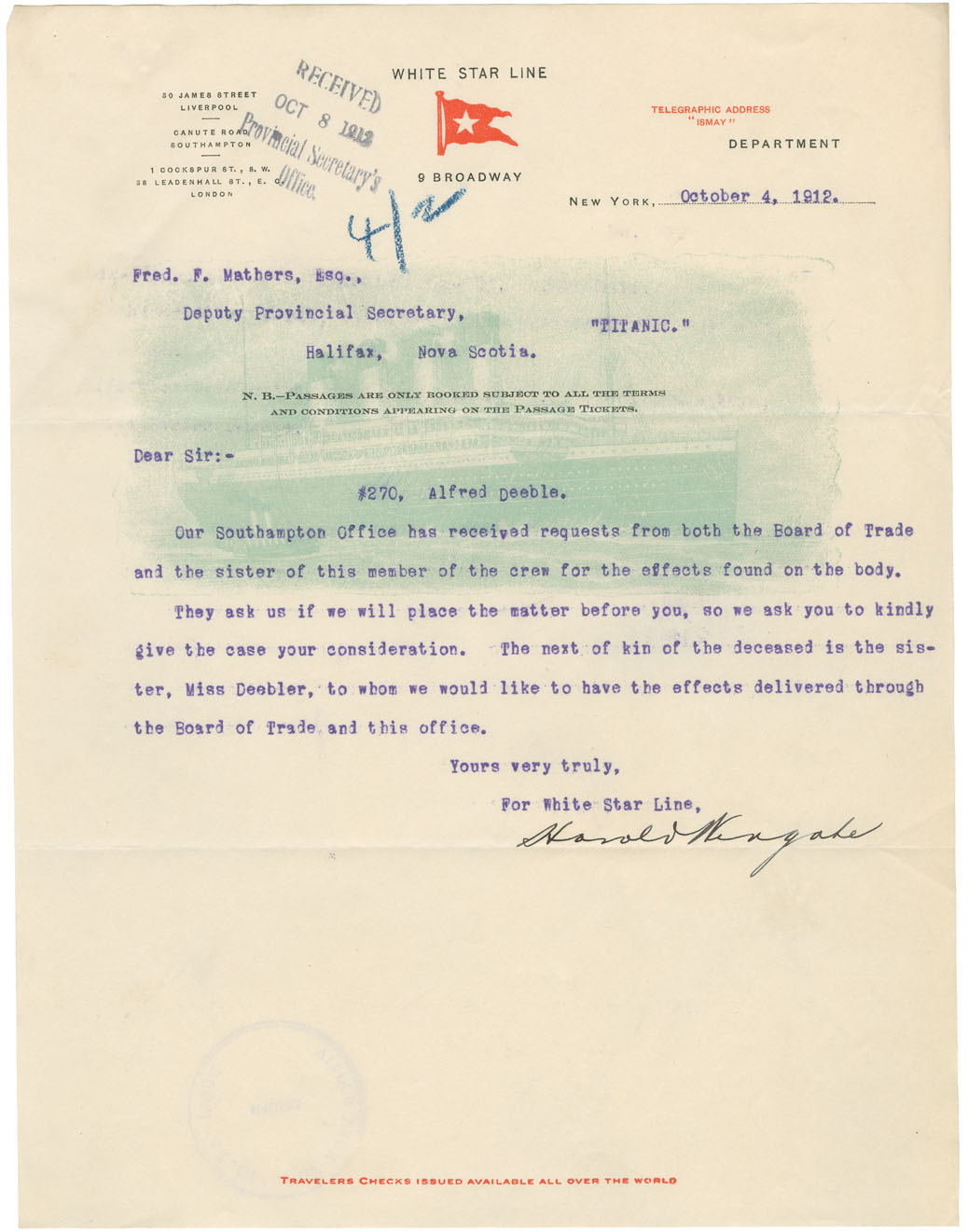A key used aboard the Titanic that was recovered in the aftermath of the ship’s sinking has sold at auction for US$131,250, after being passed through four generations of a crew member’s family.

The weathered skeleton key with a brass plate inscribed with “PANTRYMAN” belonged to first-class saloon steward Alfred Arnold Deeble, and was found on his body.
Boston-based RR Auction sold the lot through online bidding that concluded this past weekend.
On April 14, 1912, RMS Titanic struck an iceberg and sank in the cold Atlantic about 700 nautical miles from Nova Scotia, killing 1,497 of the 2,209 passengers and crew on board.
Deeble’s body was recovered by Halifax-based cable ship, the MacKay-Bennett, one of 337 bodies plucked from the Atlantic after the tragedy.
He was buried at Fairview Lawn Cemetery in Halifax, and part of the auction lot includes a 2011 photo of his great-niece, Linda Jo McNulty Davis, visiting his gravesite.
McNulty Davis’s grandmother, Lily Deeble, was instrumental in bringing the key home to her family.

Get daily National news
Not only did she lose her brother Alfred in the sinking, but her fiancé John Herbert Strugnell — another Titanic steward — also perished.
“Any Titanic artifact with a well-documented lineage is of the utmost desirability. That this originates directly from the family who witnessed dual tragedies in the deaths of saloon stewards Alfred Arnold Deeble and John Herbert Strugnell makes it all the more poignant,” said Bobby Livingston, executive vice-president with RR Auction, in a statement.
An express package from Nova Scotia
Deeble, was born in Clerkenwell, London in 1877, had served in the Royal Navy and had a career as a singer.
In 1912, he was employed by the White Star Line and was on Titanic’s maiden voyage.
Documents on the Nova Scotia Archives’ RMS Titanic Resource Guide tell the story of Deeble’s key — and his sister Lily’s efforts to get it back.
On a piece of yellowed paper documenting his death, Deeble was marked as body no. 270. Initially, he’s unidentified and listed as wearing black pants, a white coat with buttons and a green raincoat.
His effects include a gold watch, a gold ring, and “one bunch keys.”
In pencil, someone later notes the keys say “Pantryman” and “Chief Storekeeper,” but Deeble’s name appears to be misspelled as they try to identify him.
Months later, a letter from White Star Line to Nova Scotia’s deputy provincial secretary, Frederick F. Mathers, on Oct. 4, 1912, asks for his belongings.
“Our Southampton Office has received a request from both the Board of Trade and the sister of this member of the crew for the effects found on the body,” the message begins.
“They ask us if we will place the matter before you, so we ask you to kindly give the case your consideration.”
On Oct. 8, 1912, Mathers wrote White Star Line back to say he had indeed sent the items, which he valued to be $30.
“The effects in this case are of little value, and I am therefore sending you today by express a package containing these effects,” he wrote.
From then on, the key remained in the family and was first passed down from Lily to her daughter, according to RR Auction.
The auction house called the artifact “remarkable” and said it now “transitions into a new chapter of its storied journey.”









Comments
Want to discuss? Please read our Commenting Policy first.